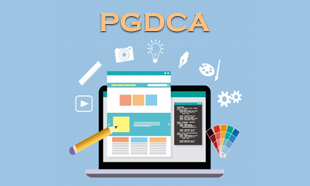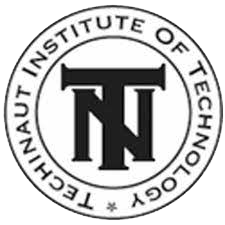50
Post Graduate Diploma in Computer Application (PGDCA) course at Shri Sai, Computer Coaching Institute, is designed to provide students with a comprehensive understanding of computer applications and their practical implementation.
SHRI SAI COMPUTER COACHING INSTITUTE, located in Yenbodi, Amdi, Chandrapura, Maharashtra, is a renowned institution offering a one-year Postgraduate Diploma in Computer Application (PGDCA). As a franchisee of Techinaut Institute of Technology, the institute provides a comprehensive curriculum that covers various aspects of computer applications, including basic computer concepts, software applications, programming, and internet technologies. This course is designed to equip students with the knowledge and skills required to pursue a successful career in computer applications.
INTRODUCTION OF THE COURSE:
The Post Graduate Diploma in Computer Application (PGDCA) course at SHRI SAI COMPUTER COACHING INSTITUTE, is designed to provide students with a comprehensive understanding of computer applications and their practical implementation. Whether you are a recent graduate looking to enhance your skills or a working professional seeking to upgrade your qualifications, this course offers a perfect blend of theory and practical training to meet your needs.
THE OBJECTIVE OF THE COURSE:
The PGDCA course aims to equip students with the necessary knowledge and skills to excel in computer applications. The course aims to provide students with a solid foundation in computer science, software development, and information technology. By the end of the course, students will be proficient in using various software applications, programming languages, and internet technologies, making them valuable assets in the IT industry.
COURSE CURRICULUM:
1. Basic of Computer:
The course begins with an introduction to the basics of computers, including their history, components, and functions. Students learn about the different types of computers, their applications, and the evolution of computing technology. They also gain practical experience using computer hardware and software, laying the foundation for the rest of the course.
2. Computer Appreciation:This module delves deeper into the role of computers in modern society. Students learn about the impact of computers on various aspects of life, including business, education, and entertainment. They also explore emerging trends in computing technology, such as artificial intelligence and machine learning, gaining a broader understanding of the role of computers in the digital age.
3. Computer Organization:This module focuses on the internal structure of computers. Students learn about the architecture of a computer system, including the CPU, memory, storage devices, and peripherals. They also explore topics such as binary representation, data storage, and computer networks, gaining a deeper understanding of how computers function.
4. Operating System:Operating systems are an essential part of any computer system. In this module, students learn about operating systems, including Windows, macOS, and Linux. They also gain practical experience using operating system features such as file management, multitasking, and system configuration.
5. MS Word Processing:Word processing is a fundamental skill for anyone working with computers. In this module, students learn how to create, edit, and format documents using word processing software. They also learn about features such as spell check, grammar check, and document layout, gaining practical experience in producing professional-quality documents.
6. MS Spreadsheet Package:Spreadsheets are powerful tools for data analysis and management. In this module, students learn how to create, format, and analyze data using spreadsheet software. They learn about features such as formulas, functions, charts, and graphs, gaining practical experience in using spreadsheets to solve real-world problems.
7. MS Presentation Package:Presentations are essential to communicating information in the modern workplace. In this module, students learn how to create, design, and deliver effective presentations using presentation software. They learn about features such as slide design, animation, and multimedia integration, gaining practical experience in creating dynamic and engaging presentations.
8. Information Technology and Society:This module explores the impact of information technology on society. Students learn about the role of IT in various sectors, such as healthcare, education, and government. They also examine ethical and social issues related to IT, gaining a broader understanding of the implications of IT in the modern world.
9. Introduction to the Internet:The Internet is a vast repository of information and resources. In this module, students learn how to navigate the internet effectively using web browsers, search engines, and online resources. They also learn about internet safety and security, gaining practical experience in responsibly and ethically using the internet.
10. Internet Network:This module covers the basics of Internet networking. Students learn about different types of networks, including LANs, WANs, and the Internet. They also learn about networking devices such as routers and switches, gaining a deeper understanding of how data is transmitted over networks.
11. E-Mail:E-mail is a ubiquitous communication tool in the modern workplace. This module teaches students how to create, send, and manage e-mail messages using e-mail software. They learn about features such as e-mail composition, attachments, and folders, gaining practical experience using e-mail effectively for professional communication.
12. Introduction to Programming:Programming is the backbone of software development. In this module, students learn the basics of programming, including programming concepts such as variables, data types, and control structures. They also learn how to write simple programs using a programming language such as C, Java, or Python, gaining practical experience in software development.
13. Algorithms for Problem-Solving:Algorithms are essential for solving complex problems efficiently. In this module, students learn about different algorithms, including sorting, searching, and graph algorithms. They also learn how to analyze algorithm efficiency, gaining a deeper understanding of how algorithms can be used to solve real-world problems.
CONCLUSION:
The Post Graduate Diploma in Computer Application (PGDCA) course at Shri Sai Computer Coaching Institute offers a comprehensive curriculum that covers various aspects of computer applications, including basic computer concepts, software applications, programming, and internet technologies. Whether you are a recent graduate looking to enhance your skills or a working professional seeking to upgrade your qualifications, this course provides the knowledge and practical experience necessary to excel in computer applications. Enroll today and take the first step towards a successful career in the IT industry.
Lectures = 260 HRS
Practical/Tutorials = 260 HRS
Total = 520 HRS


